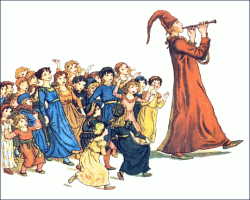His Dark Materials is a trio of fantasy novels written by Philip Pullman, including The Golden Compass, published in 1995. A fantasy movie of The Golden Compass that will surely attract a younger audience has been made. It addresses contemporary issues and carries an overtly critical (if not cynical) tone against certain religious practices within the Christian church.
The spiritual themes of The Golden Compass are obvious. For example, the phrase “His Dark Materials” is borrowed from Milton’s Paradise Lost, and every human in Pullman’s imaginary world has a daemon, a kind of talking spirit-animal. Also, in The Golden Compass, the Church is not represented symbolically but named outright, as having evolved into a sinister totalitarian bureaucracy called the Magisterium that perpetrates massive cruelties in the name of good.
Pullman contends that he does not have a problem with religious believers or religion in general, but is trying in the book to address what happens when religion mixes with politics. “Religion is at its best when it is furthest from political power,” he says.
He has even received warm praise from the Archbishop of Canterbury for exploring spiritual issues, but swears he is “not preaching a sermon. I’m not giving a lecture. I’m telling a story. Any position I take is that of a storyteller …”
What’s your stance on religious engagement with politics? How might churches engage the questions Pullman is raising in healthy ways? How can youth ministers help parents talk with their teenagers and children about such complicated and deep issues while protecting them from the confusion or bitterness that may result from this movie?




